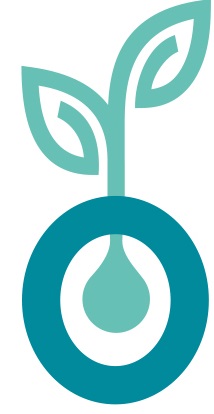SPAQuE
SPAQυE, created in 1991, is a company dedicated to remediation of orphan polluted sites for the Walloon Government. On of its mission is also involvement in the preparation of the soil legislation and the development of risk assessment tools.
Firstly, when Esther GOIDTS told me about this new platform, my first impression was that other tools already exist for founding projects as H2020 (Horizon Europe now) or Inter reg system.
But after several months, when SOILVER appears, I saw the advantages for SPAQυE to be involved in SOILVER :
- to share problems specifically focused on the soil pollution, which is exactly the goal of SPAQυE and to have the possibility to exchange on this with other countries : when « we are not alone, we feel better » ;
- to carry out research projects, with a pragmatic approach (which is also the aim of SPAQυE, which is not a fundamental research institute) and to participate in it, with or without funding. This flexibility was a very important point for the Steering Committee of SPAQυ
The financial involvement in SOILVER is reasonable, with an amount of about 4000 € per year based on an equal share of the costs (this amount can decrease if more members are joining).
Regular meetings are organised to identify next activities. The funding depends on the capacity of each member, and can range from to x to 500 000 € by project, which allows to improve in a topic and keeping the goal, compared to very big projects where it is more difficult to stay on the line.
SPW ARNE
SPW ARNE is the regional authority in charge of agriculture, natural ressources and environment for Wallonia, Belgium. I work at the Soil Protection Direction of SPW ARNE, and have been involved with SOILveR since the beginning (and previously with SNOWMAN network since 2009), by funding research projects and taking an active part in exchanges with the other SOILveR members.
- Fund research in a more coordinated way and benefit from experience and skills from various professional backgrounds while keeping the overall picture provided by our common research agenda
Often we conduct our own research program on soil and land in our ministries, but when exchanging with colleagues from other countries we realize we share the same questions and issues, and finance applied research with similar aims, with however restricted budget and resources. If we join our forces, then we can higher up the level of research, increase the professional background competencies of the partners involved, and find critical complementarities to better reach our common objectives. I was involved in 6 transnational projects, and each of them allowed us to better handle our issues around soil management, while being able to apply our usual internal rules to finance projects.
For example, in Wallonia we have a legacy of polluted soils due to our intense industrial activity during the 18th and 19th century, such that our background concentration can be high in some part of the territory. Nowadays, there is an increasing interest in urban agriculture in the context of feeding cities with local production. However, soil foreseen for urban gardening can be contaminated by various pollutants. With the URBAN SOIL project involving FR, BE and NL and various background researchers (social, agronomical and health), we have now a better view on the extend of the problem, on the levels of pollutants, and on the way to go forward without breaking the push for urban agriculture. It helped us to develop a dedicated regional project which goes further on that subject (SANISOL).
Swedish Geotechnical Institute, SGI
The contaminated soils issues we are dealing with in each country we have in common all over Europe, and that we need to collaborate cross borders is kind of obvious. Even more so with a new common European Soil Strategy focused around Soil Health.
But it can be challnging to find efficient ways to do this. For The Swedish Geotechnical Institute, SGI, SOILveR has become a valuable platform both for informing us on what is going on at a European level, and to reach out and exchange on our own results and issues that we are struggling with at a national level. Two examples are the PFAS and the Lead problems – where the workgroups and meetings that SOILveR, together with other networks, have initiated are valuable for us e.g. in working on e.g. chemical analysis and on developing guideline values. It would have been difficult for us to by ourselves reach the experts in science and policy and share knowledge and experiences to the extent thar we can now. The flexibility of SOILveR allows us to explore different ways of exchanging knowledge and experiences. The “SOILveR coffee break meetings” is a simple and excellent format developed within the platform for spreading European knowledge, tools, experiences and more, to our national Contaminated Sites society which brings us closer to the EC and joint work towards healthier soils. It is also a channel for us to share our results and experiences to other countries. It has rapidly attracted Swedish participants from both the public and private sector.
